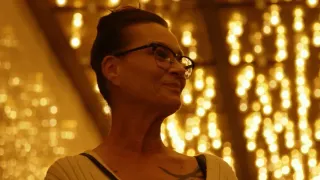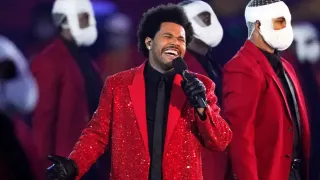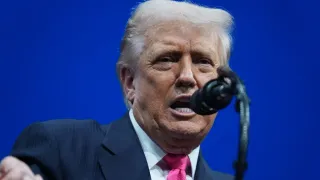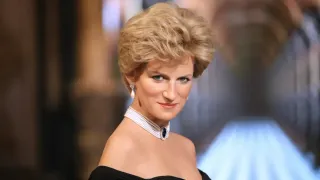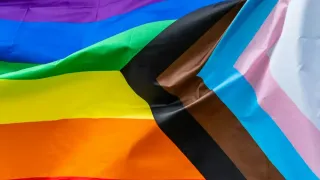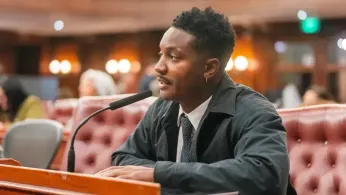
4 hours ago
Chi Ossé, Black Queer NYC Council Member, Files to Challenge Hakeem Jeffries in Congress
READ TIME: 4 MIN.
Chi Ossé, a 27-year-old New York City Council member known for his activism and unapologetic advocacy for marginalized communities, has officially filed to challenge House Minority Leader Hakeem Jeffries in the upcoming 2026 Democratic primary for New York’s 8th Congressional District. This marks the latest high-profile contest between the Democratic Party’s established leadership and a wave of younger, more progressive candidates demanding change on issues from racial justice to LGBTQ+ rights .
Ossé, who has been featured in major outlets such as The New Yorker and New York magazine for his trailblazing work, enters the race as the youngest member of the City Council and as one of the most prominent openly queer Black elected officials in New York. His campaign launch comes amid heightened national attention to both generational and ideological divides within the Democratic Party .
Ossé rose to prominence in New York City after building a reputation as a community organizer and activist, particularly in the wake of Black Lives Matter protests. He has consistently championed both racial justice and LGBTQ+ rights and is noted for his active presence on social media, where he connects with younger voters disillusioned with politics as usual .
In his statement announcing the congressional bid, Ossé criticized the Democratic Party’s current leadership, particularly their response to Republican opposition and their failure to articulate a compelling vision for the future. “The Democratic Party’s leadership is not only failing to effectively fight back against Donald Trump, they have also failed to deliver a vision that we can all believe in, ” Ossé said .
Ossé’s campaign seeks to energize a coalition of progressives, young voters, LGBTQ+ constituents, and those dissatisfied with the status quo. By filing with the Federal Election Commission and launching a grassroots fundraising drive via ActBlue, his candidacy signals a serious intent to mount a viable challenge .
Jeffries, who has represented the 8th District since 2013 and is widely seen as a leading figure in the party, faces a rare challenge from within his own ranks. Should Democrats regain the House, Jeffries would be poised to become the first Black Speaker, adding further political weight to this primary .
The decision to run has not been without controversy among progressive leaders. Ossé is closely allied with Zohran Mamdani, the Democratic Socialists of America-endorsed incoming mayor, whose campaign he helped energize, particularly among young Black voters. However, both Mamdani and Rep. Alexandria Ocasio-Cortez have privately—and in Ocasio-Cortez’s case, publicly—discouraged Ossé from running, citing party unity and the need to focus on broader goals such as affordability and resisting authoritarianism .
Rep. Ocasio-Cortez told Axios, “I certainly don't think a primary challenge to the leader is a good idea right now, ” underscoring the complex dynamics at play as progressives balance internal debates about strategy with demands for accountability and renewal .
Jeffries’s campaign responded to the news by welcoming a robust debate, with spokesperson Justin Chermol stating: “We welcome this primary challenge and look forward to a rigorous debate about the type of serious leadership required to deliver for the people of Brooklyn and the nation” .
Ossé’s candidacy is especially significant for LGBTQ+ representation in Congress. As a Black queer man, his visibility and leadership challenge persistent barriers to LGBTQ+ political participation, particularly among people of color. Advocates in New York and beyond have noted that increasing the diversity of voices in Congress is vital for crafting legislation that addresses the unique challenges faced by LGBTQ+ and Black communities .
The race also comes at a time when anti-LGBTQ+ rhetoric and legislative attacks are on the rise nationwide. Ossé’s campaign is expected to highlight issues such as gender-affirming care, hate crimes, and the expansion of civil rights protections. His bid reflects a broader movement among LGBTQ+ candidates to challenge both conservative and establishment forces that have historically sidelined queer voices .
Ossé’s candidacy mirrors the insurgent campaigns of leaders like Alexandria Ocasio-Cortez, who in 2018 unseated a powerful Democratic incumbent with a grassroots movement. Whether Ossé can replicate that success depends in part on the willingness of Brooklyn’s diverse electorate to embrace a new generation of leadership and on his ability to mobilize coalition support around justice, equity, and inclusion .
His challenge also raises questions for the national Democratic Party: How will it navigate internal dissent, generational shifts, and calls for greater LGBTQ+ and racial representation? As the primary campaign unfolds, it will serve as a bellwether for the party’s future direction and its relationship with the communities it aims to represent.
As the 2026 primary approaches, all eyes will be on New York’s 8th Congressional District. The contest between Ossé and Jeffries is likely to spark intense debate over the party’s values, its leadership, and the future of progressive politics in America. For LGBTQ+ communities and young voters, Ossé’s campaign presents both an opportunity and a test of whether the demands for justice, equity, and representation can translate into transformative political change .
